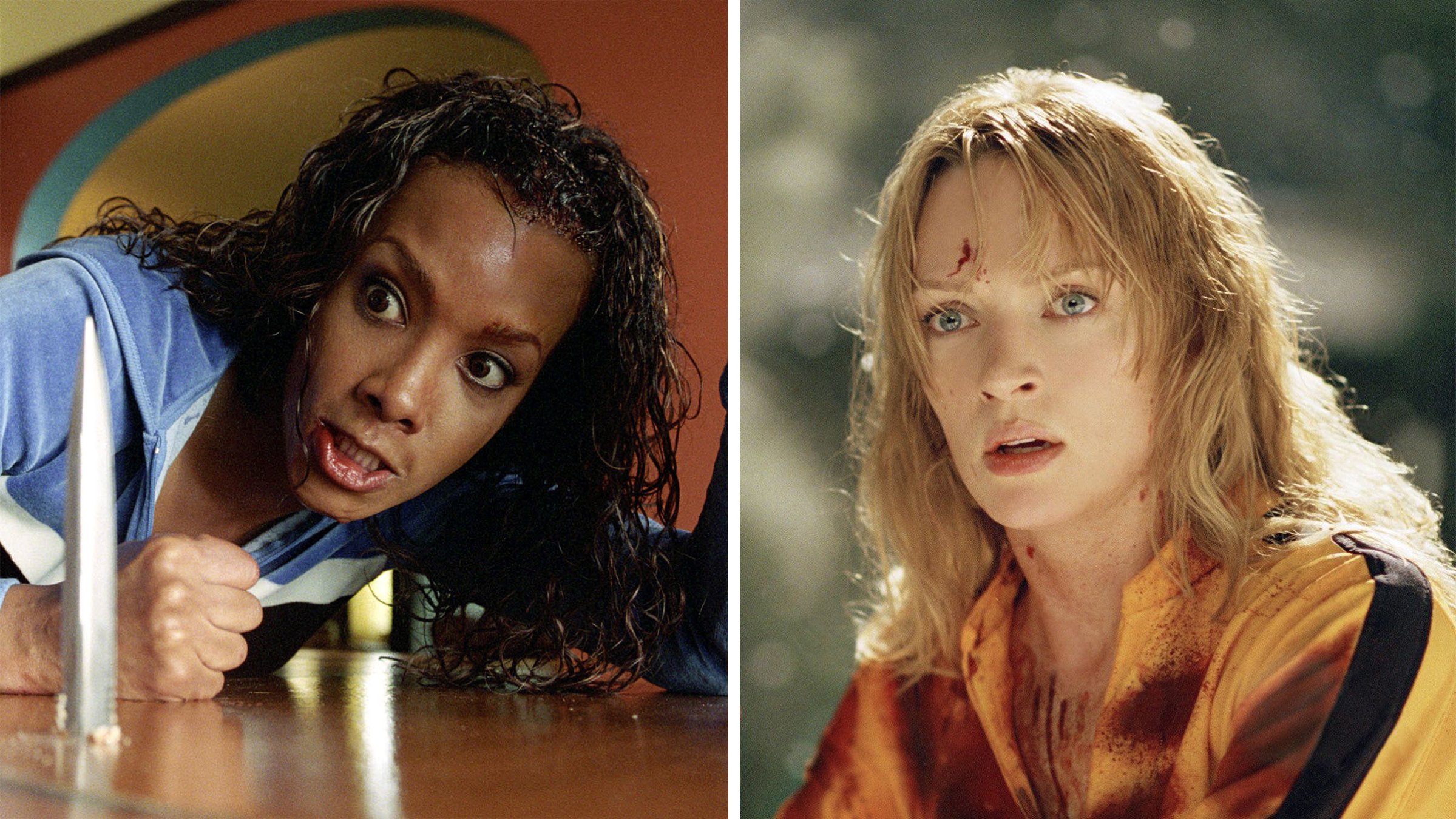
They told me I had 15 minutes with Quentin Tarantino.
“Quentin’s going to meet with you in a coffee shop,” my agent said.
“A coffee shop?”
“It’s to see whether or not he likes you,” she said. “Then he’ll let you know if he wants to see you for the part.”
I thought, That’s some sh-t, but okay. He’d written a role for a black woman in Kill Bill, a script that was already getting so much buzz. Vernita Green was a cold-blooded assassin hiding out in the suburbs of Pasadena — until Uma Thurman comes to get her.
I was so anxious when I got to that coffee shop. It was like an audition for an audition. The first thing he told me was that he was in a video store and saw my name on the cover of the Two Can Play That Game DVD.
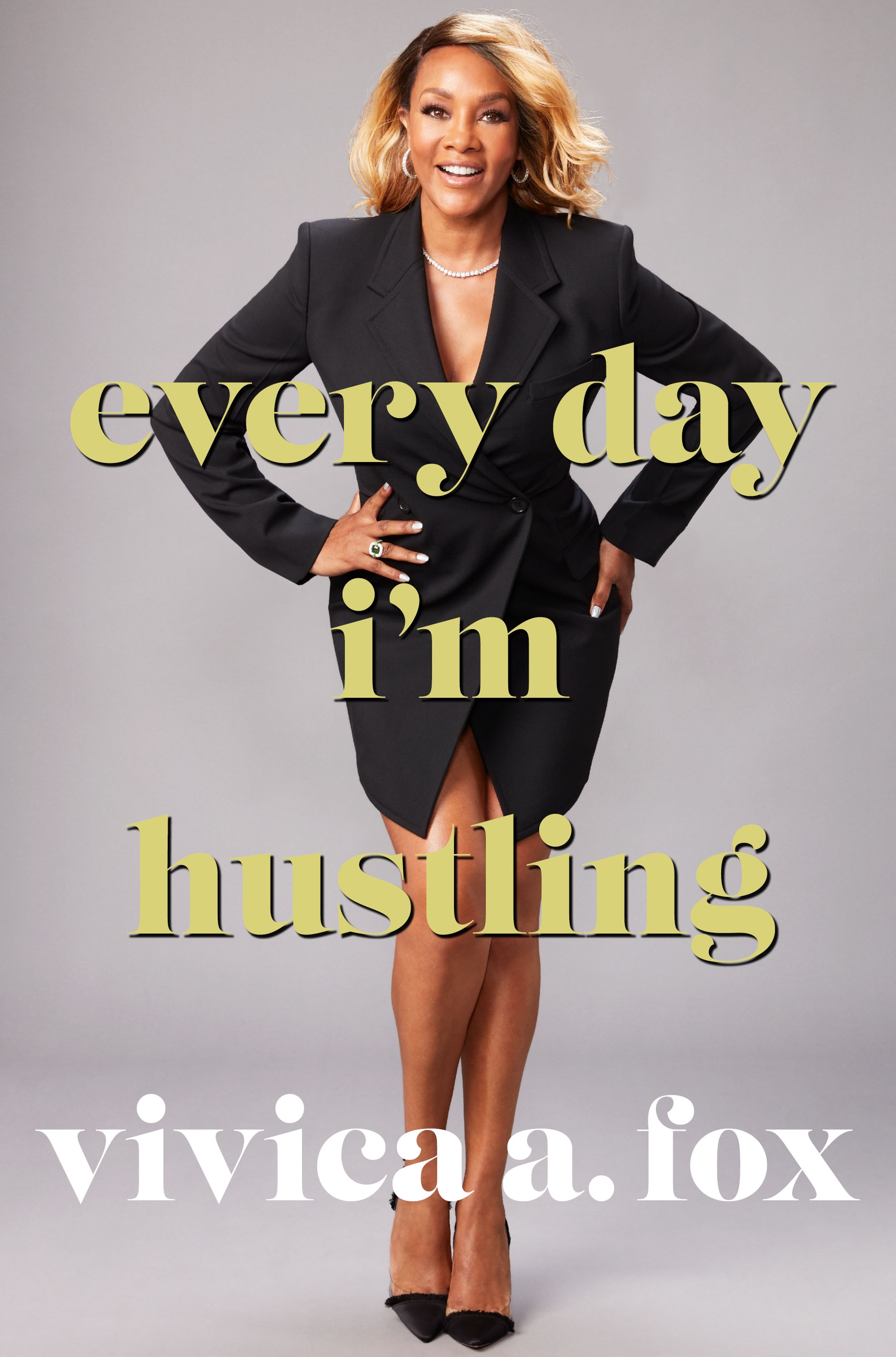
“I was like, ‘Vivica Fox!’” he said, shouting my name like I already was an action hero. “I am going to take this home, and if she moves me on the screen, that’s who’s gonna play my Vernita Green.”
Quentin loves telling stories, and if he likes you, oh, he is going to talk. At like Mach 5. We discussed favorite movies, of course. I talked about Pam Grier and how much I loved her, and Richard Roundtree, who’d played my dad on Generations. “Yeah, I’m Shaft’s daughter,” I joked.
The 15-minute meeting stretched to an hour and a half, until he said, “I’m going to send you a scene and I’m going to come to your house and we’ll work through it together.”
“My house?”
“Yeah.”
“Promise me you won’t hold my house against me?”
“What are you talking about?”
“Just promise me, Quentin.” He did, and I’m sure he suspected I was a hoarder or some crazy person living in a tiny house. The truth was that I was living in a huge 8,000-square-foot mansion in Tarzana. I’d invested in real estate, was doing very well, thank you, and this place frankly looked like a diva lived there. It was straight out of Dynasty, with a double staircase and huge chandelier right when you walked in.
It could easily be mistaken for the home of a spoiled brat who would never follow direction. This was a time in film when studios were not playing. They were tired of problem actors and had dealt with their spoiled stars shutting down productions because of heroin problems. They wanted workers on the straight and narrow, and any red flags could put me out of the running.
I was afraid he would take one look at the place and say, “Here I thought Vivica was hungry.” I still was.
So when I answered the door, his greeting was: “Holy shit, this is your house.”
“You promised me you wouldn’t hold it against me.”
“Holy shit,” he said again. “I’m not. Let me see this place.”
Before I could say anything, he helped himself to a tour like he was scouting a location. When he was done, he said he wanted to do the scene in the kitchen. Just like in the film.
He made me read it twice. And then, like he was making an idle remark, he said, “Very good. You are my Vernita Green. I’m hungry, do you want sushi?”
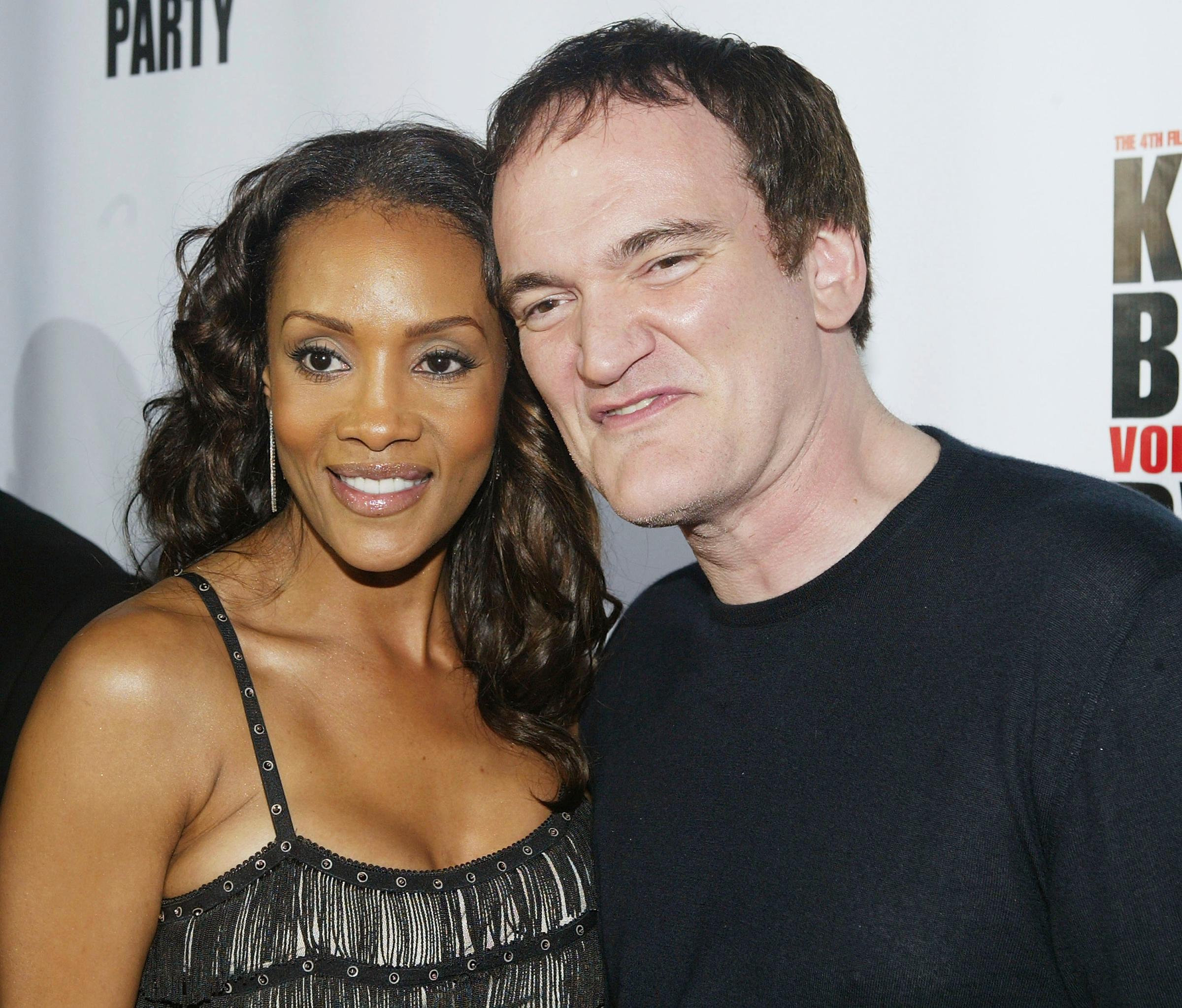
We went out to Kushiyu on Ventura in Tarzana. At dinner, he told me his plan for the film: There would be no quick cuts or getting away with special effects to make us look like real warriors. I had to commit to six months of training, and all of the actors needed to become experts in martial arts to make his vision real on the screen.
“No problem,” I said, thinking back to my high school athlete days. Piece of cake.
Ha.
For three months, Uma Thurman, Lucy Liu, Daryl Hannah, David Carradine, and I spent eight hours a day studying martial arts at a gym they put together in Culver City. It was nine to five, Monday through Friday. If you didn’t walk in the door between 8:55 and 8:59, you were in trouble at 9:01. I thought I was in the damn Olympics or something.
Uma was three months out after having her gorgeous baby boy, Roan, and she also brought her equally beautiful four-year-old, Maya, along. Of all the girls on set, I think Uma liked me best because of her kids. I used to play with them all the time. That baby boy would stare into my eyes. “Vivica,” she said one day, “I think he’s in love.” She and I were on strict diets, and we had a ritual of spending our one cheat day a week hanging out at this bowling alley Maya loved. We’d eat slice after slice of cheap pizza, loving every bit of it.
At first, Uma was frustrated because all the other women on the film were dropping weight so quickly with the intense training. I mean, the woman had just had a child. “Don’t worry,” I said, “it’ll come off.” She went to China to film for a month, and when I saw her again, I walked right past her. She yelled, “Yay! I got skinny!”
Uma needed all the support she could get — the movie rested on her shoulders. She was so busy, and then her and Daryl had that blonde competition thing going on. And I was like, I’m gonna be cool with you and I’m gonna be cool with everybody. I’m not in a pissing contest.
I have to tell you — whether you’re on a movie set or working at a law firm, some people will try to pull you into their drama and make you pick sides. Don’t fall for it. Think for yourself and stay above the fray.
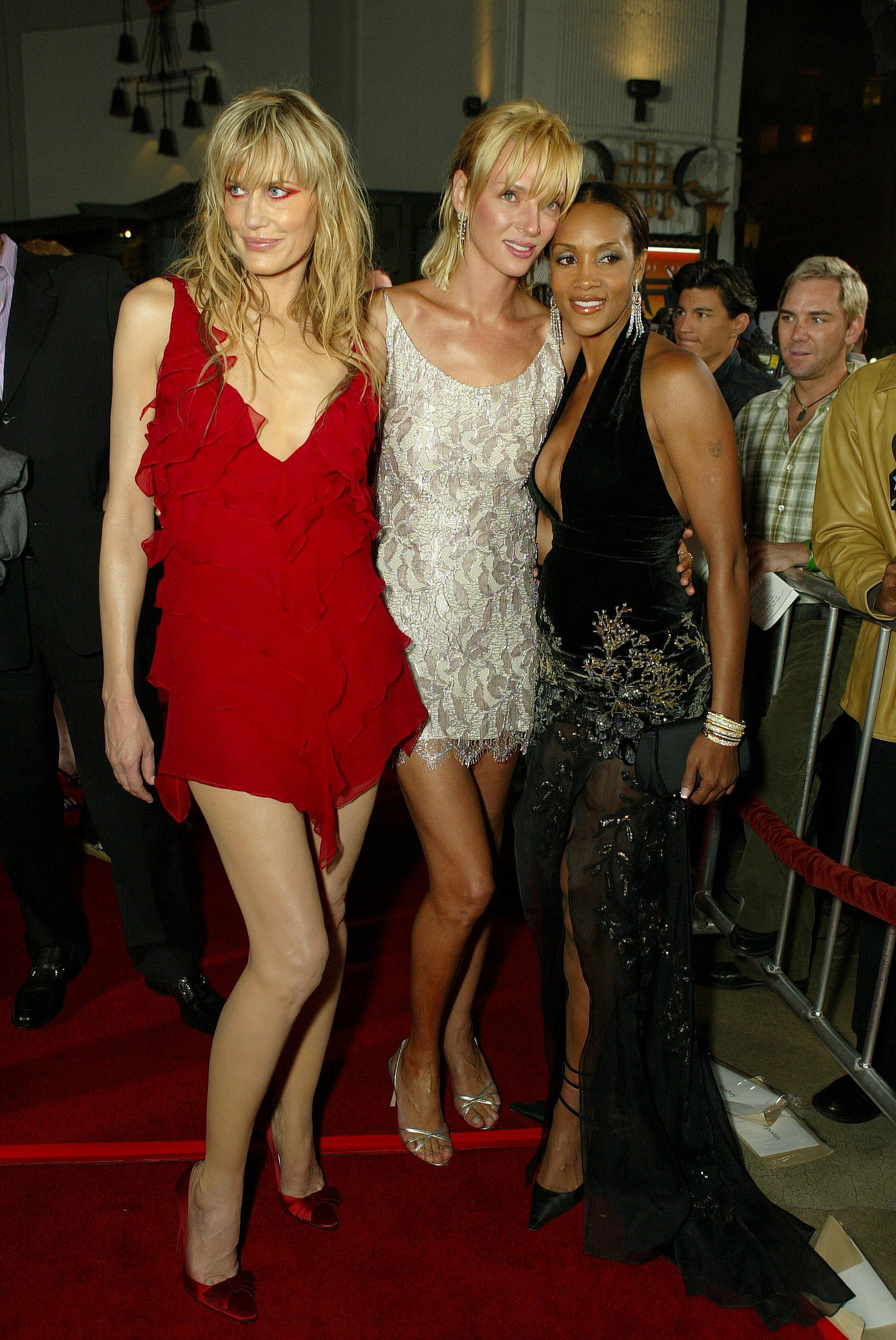
Drama aside, the training itself was brutal. We’d do fight choreography, knife throwing, samurai lessons and hit the treadmill and weights in between. They liked me because I could do them high kicks from being a cheerleader. And every Friday, at the end of the day, Quentin would gather us around and give us a review. He called it his “State of the Union.” We all had to sit and listen.
The first week Quentin cut into us, telling us we had to work harder. Okay, I can work harder.
Second week, we got the same thing after we busted our asses. He said we weren’t giving it our all.
Third Friday, I was so proud of all that our team had accomplished. I was sitting between cute little Lucy and sweet Uma, and I was ready for a high five for all of us.
Instead, Quentin tore into us. Something about us lollygagging in the morning, taking too long to suit up and gabbing over coffee. He said we should get here at 8:30, a half hour early, if we wanted to do all that.
I raised my hand. “Hold up.”
And I lost it on him. “Is this a ‘beat us up’ contest?” I asked. “Are we f-cking doing anything right? Goddamn.” Everyone gasped. I felt Uma draw back. Lucy grabbed my hand and was trying to do a kind of acupressure on me, whispering, “Calm down. Calm down.”
I couldn’t. I kept sputtering, thinking I was taking a stand for everyone. And finally Quentin sort of said he appreciated the work but he wanted us all to do our best and to trust him.
Uma came up to me after. “Come here,” she said. She put her arm on my shoulder and those beautiful eyes of hers locked on mine.
“You know, Uma, it’s bullsh-t,” I said.
She repeated in her calm, meditative voice, “I’ve worked with him. I’ve worked with him. I’ve worked with him. And . . . it’s how he does things. He doesn’t mean anything by it, it’s just how he gets down.”
“Well, God,” I sputtered, “I mean, we’re working our f-cking asses off. And it’s like, you know, we’re not doing anything right.”
“What you need to do is learn how to manipulate the situation better. Then you can get what you want.”
I was all righteous. “I don’t have to manipulate nobody,” I said. “That’s not me. I don’t have to kiss his ass.”
She cocked her head. “No, I don’t mean like that,” she said, still speaking in that calm, soothing voice. “You have to learn to be quiet, speak less. He’s tough, but he’s not stupid. He’ll concede you something if it’s to make the film better. Learn to attack intelligently, Vivica. Because he’s got the power to fire you.”
And she told me she didn’t want that to happen. “But thank you for speaking up,” she said.
That moment was pure sisterhood. She was honestly looking out for me. She wanted me to advocate for myself, but to do it in a way that was more constructive. I’ll admit, it still took me a minute to figure out what she was talking about.
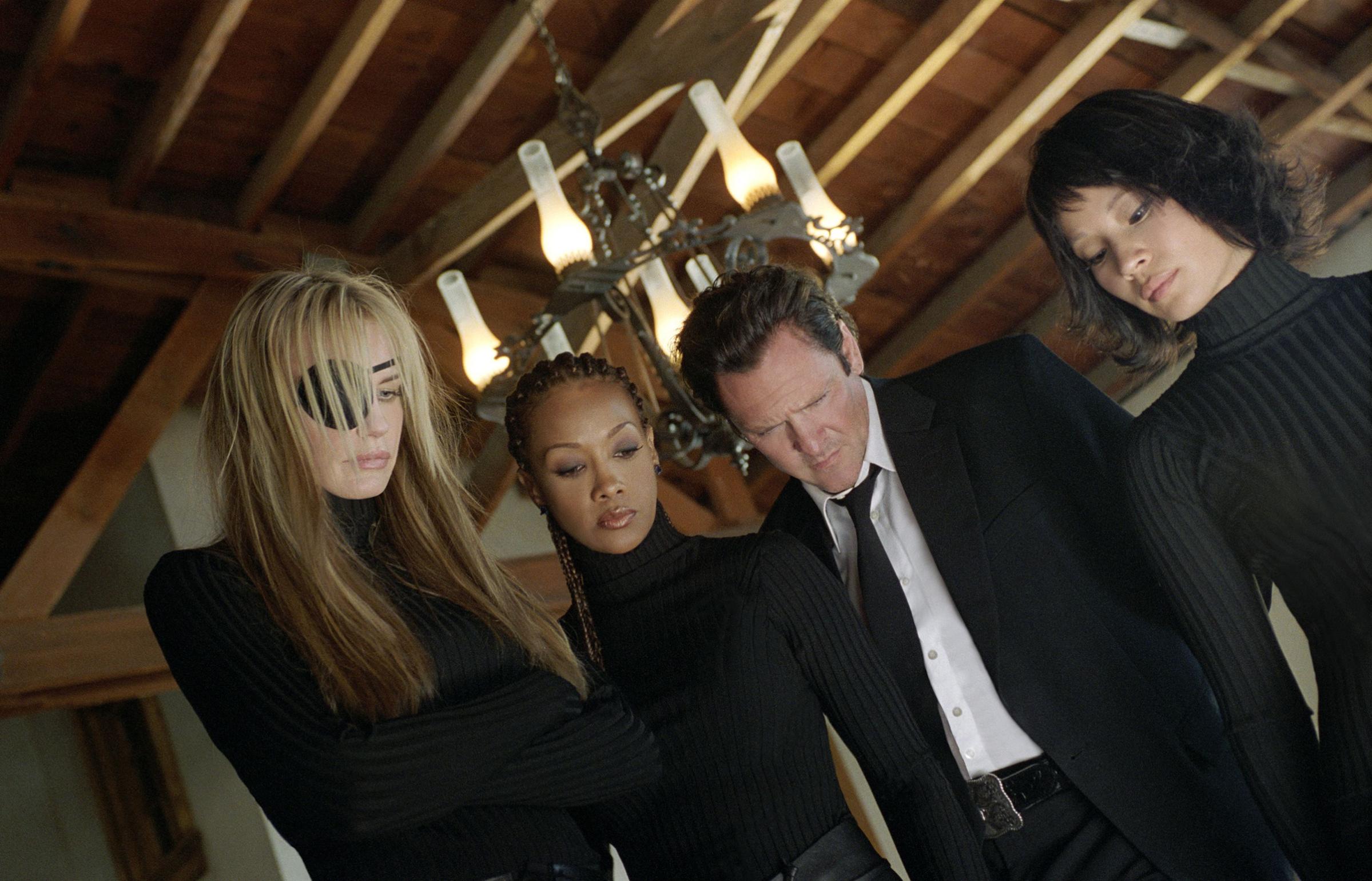
I was driving home from Culver City when I realized why she had touched me so deeply. I thought about my dad, and when he would tell me not to just go off on the basketball court when all my energy had me spazzing out. “Attack intelligently,” he would tell me, the exact same words Uma used. “Don’t blow it by blowing up.”
When it came time for real rehearsals and filming, I got to see Uma give a master class in being a movie star and leader on the set.
I watched her argue with Quentin, intelligently and successfully, for wardrobe changes and even dialogue rewrites. She made it a true collaboration, pushing him away from simply making an ode to the samurai films he made us all watch with him, toward something new. Kill Bill is an astonishing work because of their shared efforts, and it’s because they each approached it not as a job, but as a cornerstone of their careers.
I know it’s the work that I am most proud of in my career. It took four days to film our fight scene, and on the last day I took a long bath when it was over. I sat in the tub and counted all the bruises on my arms and legs. I got up to 30. And I did so with gratitude. I was proud of my battle scars. I had done a Tarantino film, and nobody could take that accomplishment from me. Quentin is a fabulous director and I’d love to work with him again. I appreciate those endless hours in the Culver City torture chamber. It was his way of breaking us down to build us back up.
I had no idea about the car crash Uma recently made public, as that scene was shot after I completed my filming. But when I saw it I was shocked. Even at the premiere and on press tours in Los Angeles and New York, it wasn’t even mentioned. I commend Uma for her courage and grace, and hopefully Quentin learned that no shot is worth risking an actor’s safety.
From Uma, I learned so much about sharing power. She wanted me to do my best. That hasn’t always been the case for black women actors in film. I think the dirty secret of why African-American women are only now getting more opportunities is that directors were afraid to put a sister against a white woman actor. Because they knew the sister, who’d had to work her ass off to get to that moment, was always going to shine like the brightest light and blow the white actor off the screen. I say put me with the best. Because if she’s bringing her A-game, I’m bringing my A-plus game. And we gonna turn this mother out.
From Every Day I’m Hustling by Vivica A. Fox. Copyright © 2018 by the author and reprinted by permission of St. Martin’s Press.
More Must-Reads from TIME
- Cybersecurity Experts Are Sounding the Alarm on DOGE
- Meet the 2025 Women of the Year
- The Harsh Truth About Disability Inclusion
- Why Do More Young Adults Have Cancer?
- Colman Domingo Leads With Radical Love
- How to Get Better at Doing Things Alone
- Michelle Zauner Stares Down the Darkness
Contact us at letters@time.com